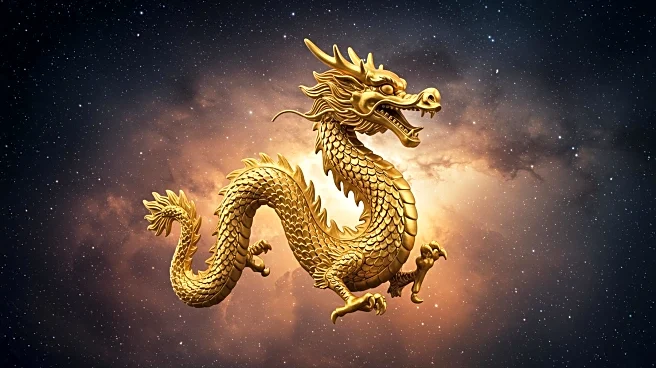What's Happening?
A24 is set to release the English-dubbed version of 'Ne Zha II', a sequel to the 2019 Chinese animated blockbuster, in U.S. theaters. The film, which has become the fifth highest-grossing film of all time, features a voice cast led by Michelle Yeoh. The story follows the demon boy Ne Zha and his warrior prince friend Ao Bing, who share a bond due to their origins from the Chaos Pearl. The film is known for its stunning visuals and chaotic storyline, with a focus on action sequences and mythological themes.
Why It's Important?
The release of 'Ne Zha II' in the U.S. highlights the growing influence of Chinese cinema in international markets. With its impressive box office performance, the film demonstrates the potential for cross-cultural appeal and the demand for diverse storytelling. The involvement of A24, a prominent U.S. distributor, signifies a strategic move to capitalize on the film's success and expand its audience. This development may encourage more collaborations between Hollywood and Chinese filmmakers, fostering cultural exchange and broadening the scope of global cinema.
What's Next?
The film's release in premium formats such as IMAX and 3D is expected to attract audiences seeking high-quality visual experiences. As 'Ne Zha II' gains traction in the U.S., it may pave the way for future releases of Chinese films in Western markets. The reception of the film could influence distribution strategies and encourage more studios to invest in international projects. Additionally, the success of the English-dubbed version may lead to further adaptations of foreign films for English-speaking audiences.
Beyond the Headlines
The film's narrative, rooted in ancient Chinese mythology, offers a glimpse into cultural storytelling that may resonate with audiences interested in exploring different traditions. The portrayal of complex relationships and identity crises within the film could spark discussions on themes of friendship, loyalty, and self-discovery. As the film reaches a wider audience, it may contribute to a deeper understanding and appreciation of Chinese culture and its cinematic expressions.










